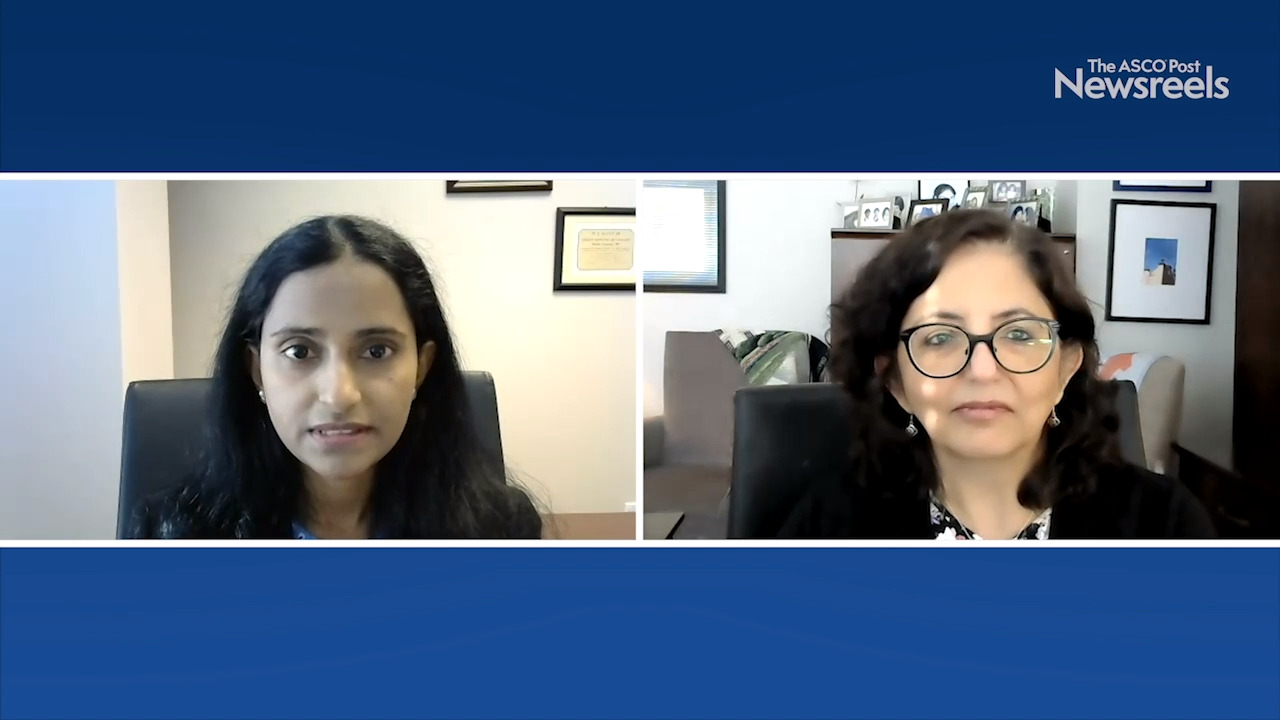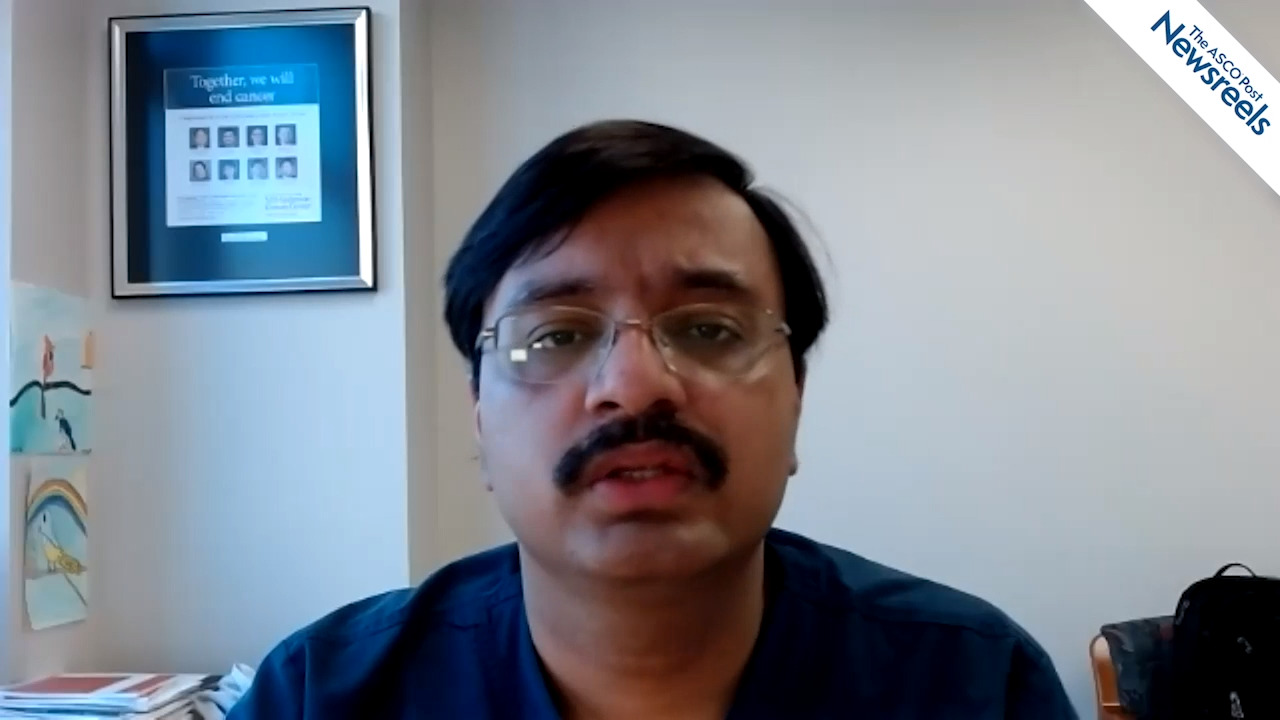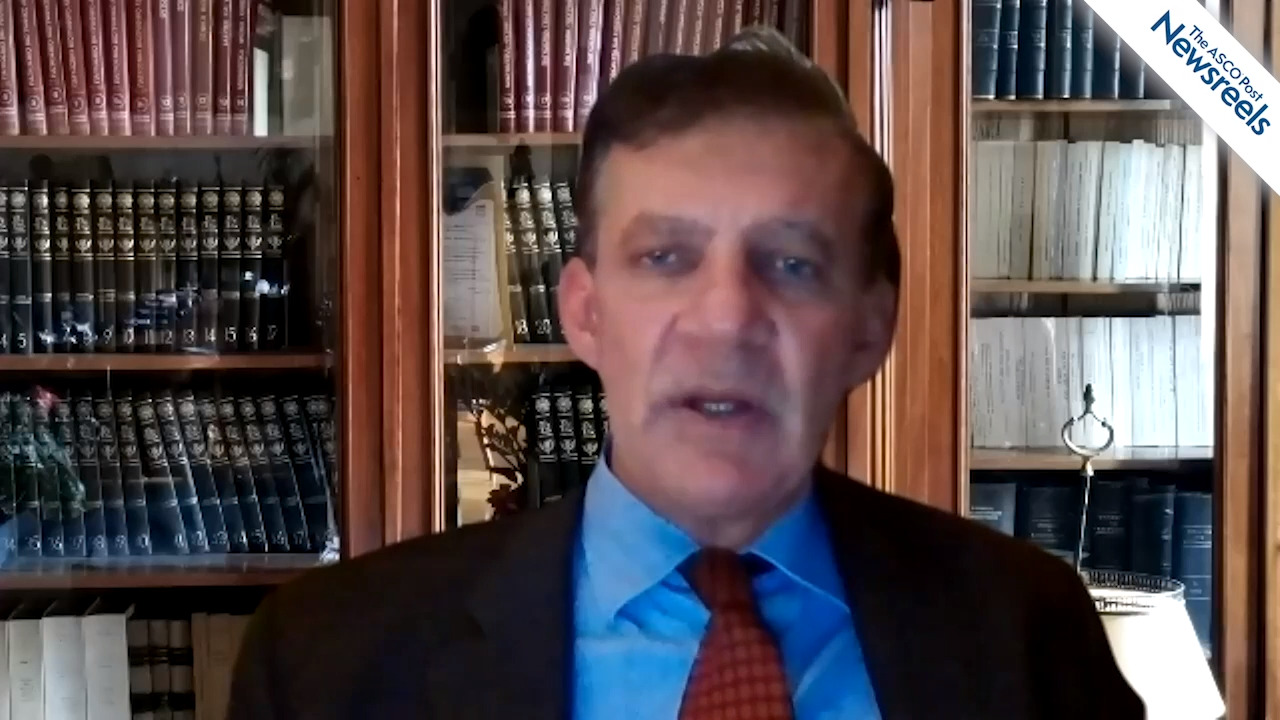Jorge E. Cortes, MD, on CML: Expert Perspective on Key ASH Abstracts
2020 ASH Annual Meeting & Exposition
Jorge E. Cortes, MD, of the Georgia Cancer Center at Augusta University, reviews four important studies of treatment advances in chronic myeloid leukemia (CML): nilotinib vs dasatinib in newly diagnosed disease; final 5-year results from the BFORE trial on bosutinib vs imatinib for chronic phase (CP) CML; data from the OPTIC trial on ponatinib for CP-CML; and a novel class of mutated cancer-related genes associated with the Philadelphia translocation (Abstracts 45, 46, 48, 49).
The ASCO Post Staff
Smita Bhatia, MD, MPH, and Radhika Gangaraju, MD, both of the Institute for Cancer Outcomes and Survivorship, University of Alabama at Birmingham, discuss findings that showed survivors of bone marrow transplants are at a 7- to 12-fold higher risk of coronary heart disease than a sibling comparison group. They recommend aggressive management of cardiovascular risk factors to prevent morbidity from heart disease in this patient population (Abstract 73).
The ASCO Post Staff
Nitin Jain, MD, of The University of Texas MD Anderson Cancer Center, reviews six important abstracts on CAR T-cell treatments for B-cell acute lymphoblastic leukemia (ALL): successful 24-hour manufacture of CAR T-cell therapy; ALLCAR19, a novel fast-off rate therapy; donor-derived CD19-targeted treatment; CAR 2.0 therapy to manage post-transplant relapse; UCART22, allogeneic engineered T cells expressing anti-CD22 chimeric antigen receptor; and inotuzumab ozogamicin in pediatric CD-22–positive disease (Session 614, Abstracts 159-164).
The ASCO Post Staff
Meletios A. Dimopoulos, MD, of the University of Athens, discusses data from the phase III APOLLO study, which evaluated the use of subcutaneous daratumumab plus pomalidomide and dexamethasone, vs pomalidomide and dexamethasone alone, in patients with relapsed or refractory multiple myeloma (Abstract 412).
The ASCO Post Staff
Ari M. Melnick, MD, of Weill Cornell Medicine, discusses the BCL10 mutation in patients with activated B-cell–like diffuse large B-cell lymphoma, and his study results which showed that the mutation should be considered as a biomarker for ibrutinib resistance so that alternative targeted treatments can be prioritized (Abstract 3).
The ASCO Post Staff
Matthew S. Davids, MD, of Dana-Farber Cancer Institute, summarizes three key studies from a session he co-moderated on ibrutinib plus venetoclax for first-line treatment of patients with chronic lymphocytic leukemia (CLL) and small lymphocytic lymphoma (SLL), long-term responses to these agents for relapsed and refractory CLL, and undetectable minimal residual disease following fixed-duration treatment with venetoclax and rituximab for CLL (Abstracts 123, 124, and 125).





